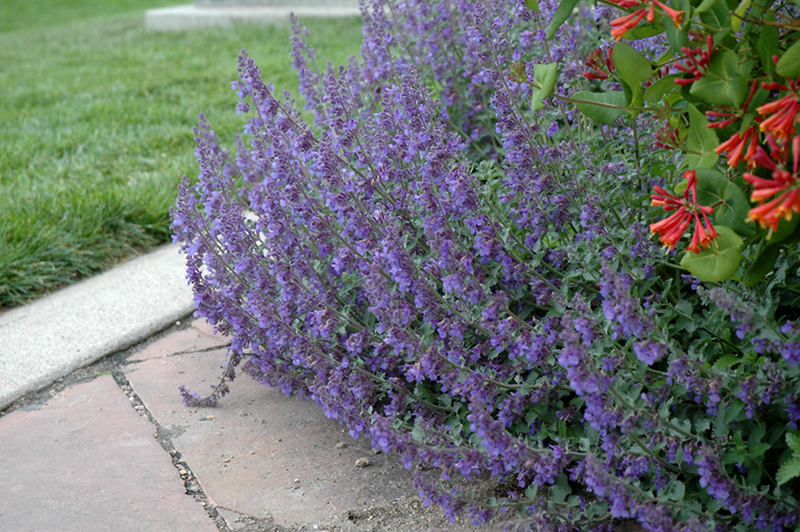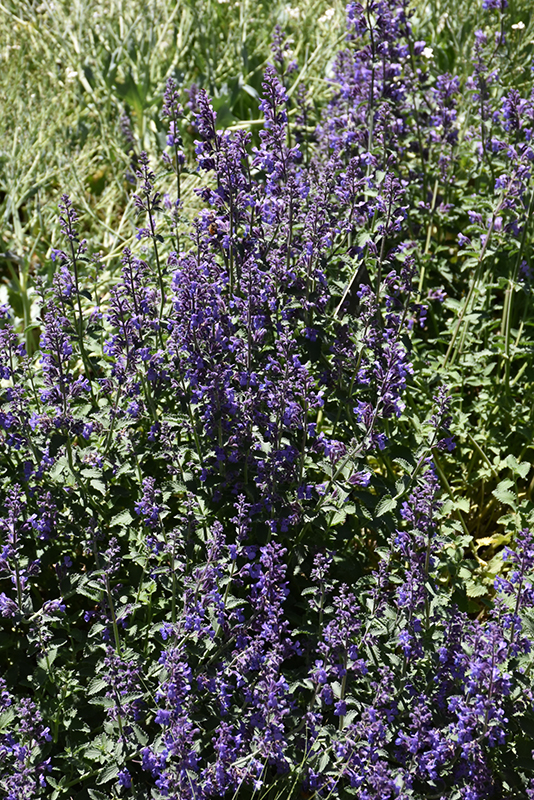Six Hills Giant Catmint Nepeta x faassenii 'Six Hills Giant' Plant Height: 3 feet Flower Height: 4 feet Spread: 3 feet
Sunlight:
Hardiness Zone: 3 Description: Blanketed with lavender flowers from early to late summer, it catches the eye when massed; it will bloom in waves all summer; a fast-growing groundcover that will drive your cats wild Ornamental Features Six Hills Giant Catmint has masses of beautiful spikes of lightly-scented lavender flowers rising above the foliage from early to late summer, which are most effective when planted in groupings. Its attractive small fragrant pointy leaves remain grayish green in color throughout the season. Landscape Attributes Six Hills Giant Catmint is a dense herbaceous perennial with a mounded form. Its relatively fine texture sets it apart from other garden plants with less refined foliage. This plant will require occasional maintenance and upkeep, and is best cleaned up in early spring before it resumes active growth for the season. It is a good choice for attracting bees and butterflies to your yard, but is not particularly attractive to deer who tend to leave it alone in favor of tastier treats. Gardeners should be aware of the following characteristic(s) that may warrant special consideration; Six Hills Giant Catmint is recommended for the following landscape applications; Planting & Growing Six Hills Giant Catmint will grow to be about 3 feet tall at maturity extending to 4 feet tall with the flowers, with a spread of 3 feet. Its foliage tends to remain dense right to the ground, not requiring facer plants in front. It grows at a fast rate, and under ideal conditions can be expected to live for approximately 10 years. As an herbaceous perennial, this plant will usually die back to the crown each winter, and will regrow from the base each spring. Be careful not to disturb the crown in late winter when it may not be readily seen! This plant does best in full sun to partial shade. It is very adaptable to both dry and moist growing conditions, but will not tolerate any standing water. It is not particular as to soil type or pH. It is highly tolerant of urban pollution and will even thrive in inner city environments. This particular variety is an interspecific hybrid. It can be propagated by division; however, as a cultivated variety, be aware that it may be subject to certain restrictions or prohibitions on propagation.![]()
![]()
![]()
![]()
![]()
![]()
![]()
![]()
![]()
![]()
![]()
![]()
![]()
![]()
![]()
Plant Finder
Characteristics
Applications
Features & Attributes


